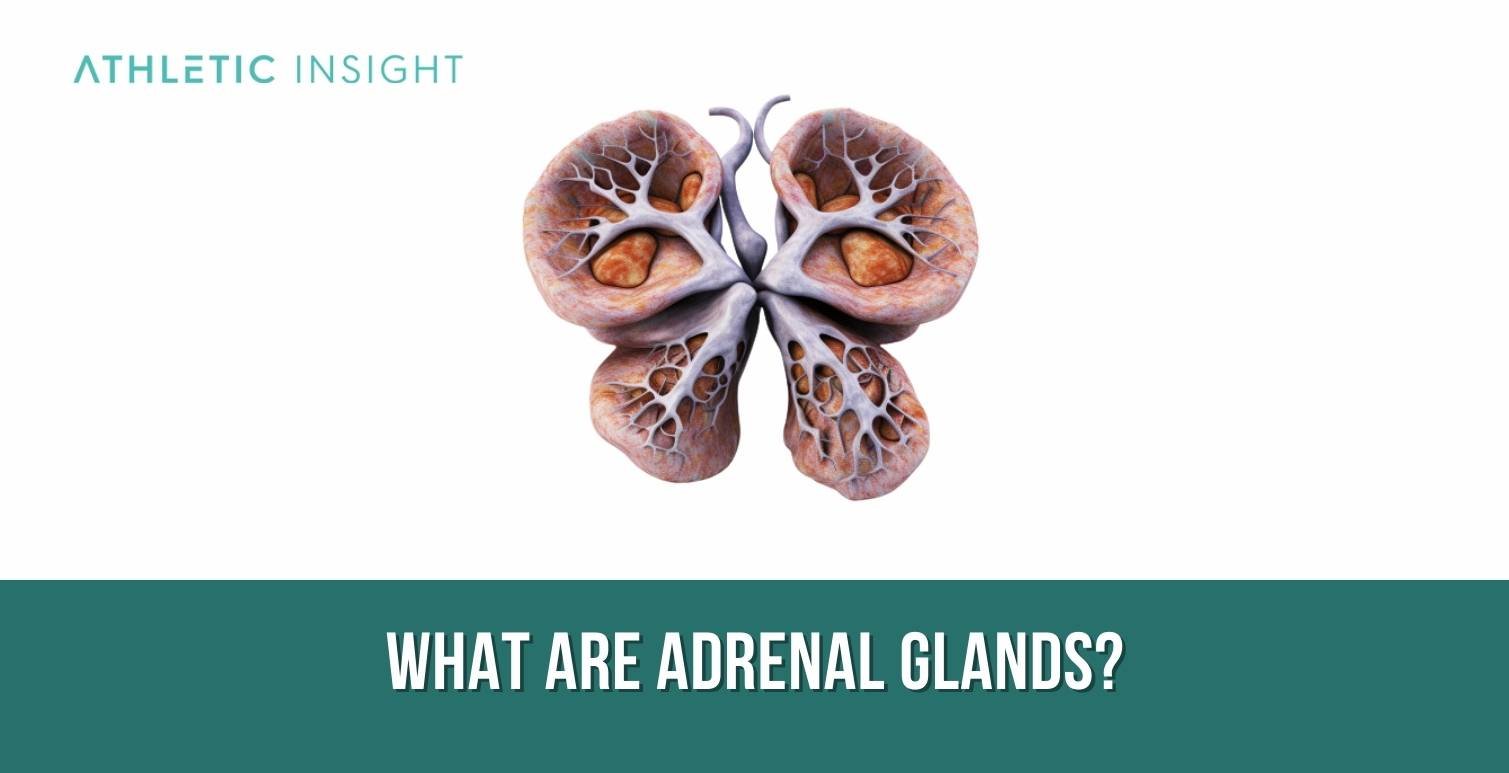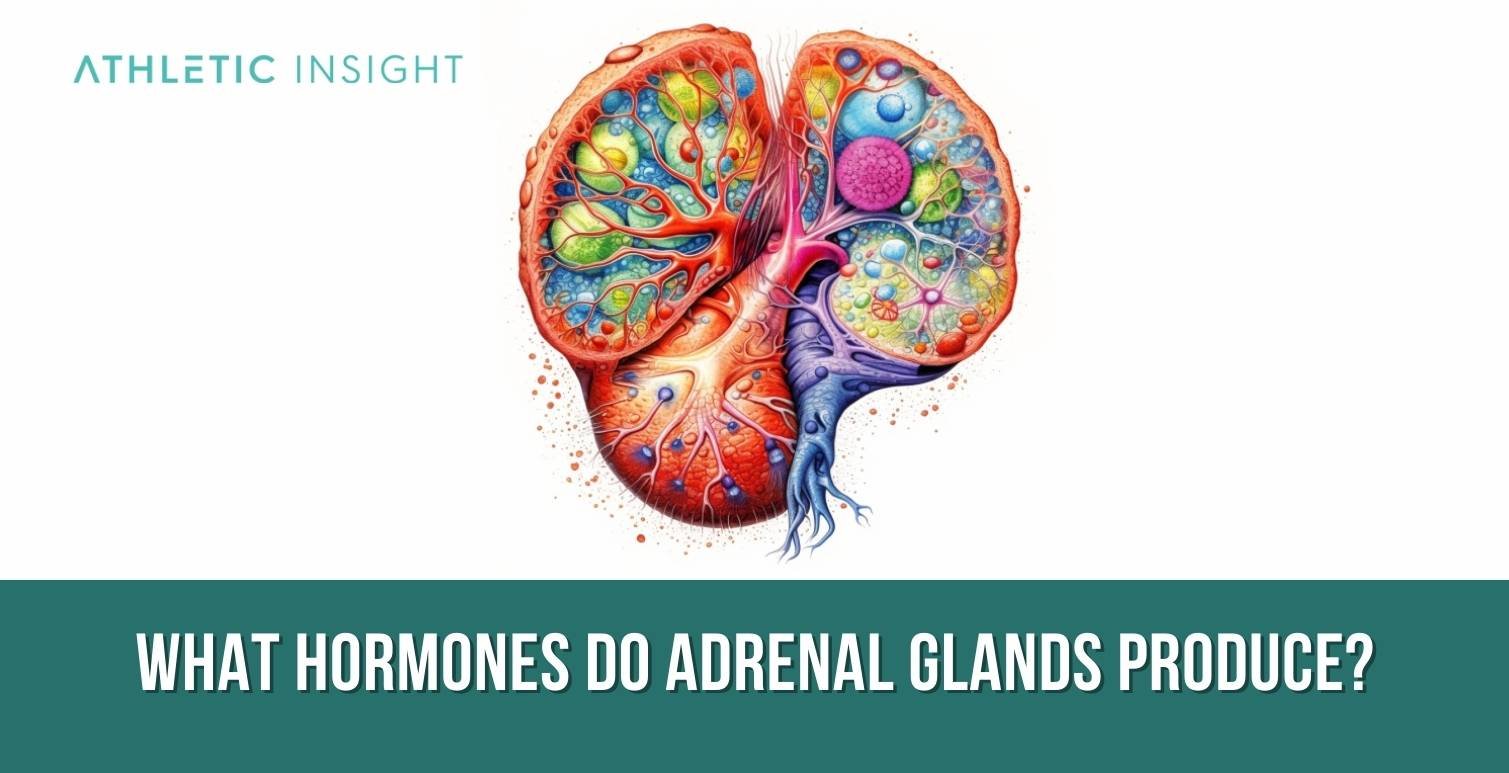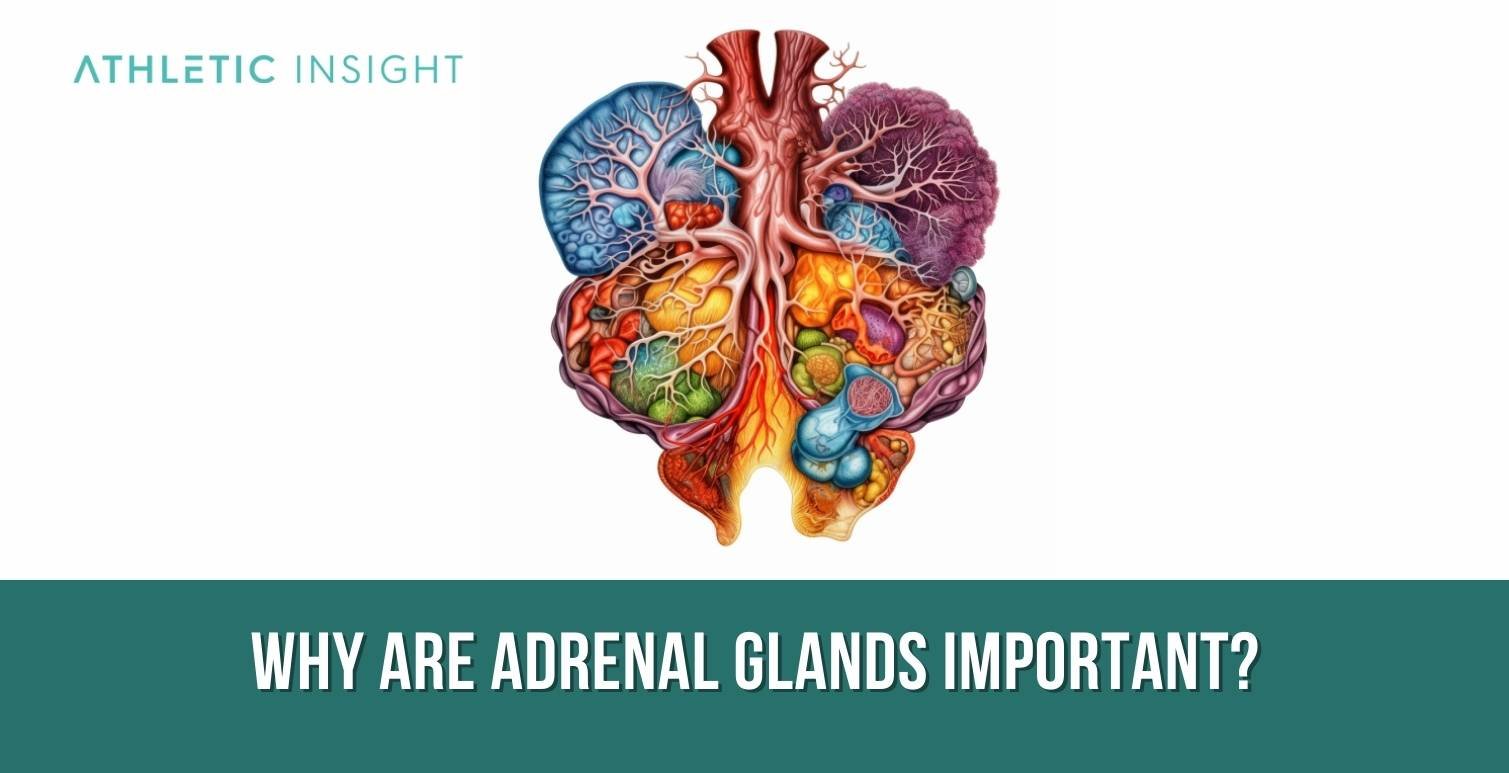In the intricately woven tapestry of the human body’s physiology, certain components hold considerable sway over overall function. One such crucial element is the adrenal gland. This microscopic entity, despite its diminutive size, is a powerhouse, orchestrating a plethora of vital functions within the body. From hormonal balance to stress response, its influence permeates the gamut of human health.
These glands, dwarfed by larger bodily organs, often go unnoticed in the grand scheme of anatomy. However, their contribution to the body’s internal equilibrium is monumental. Positioned with strategic precision above the kidneys, they serve as pivotal hormone production centers, regulating various physiological and psychological responses.
What are Adrenal Glands?
Adrenal glands are minuscule yet potent organs located in the human body’s complex anatomical landscape. Each resembles a tiny triangle, nestled like a crown atop each kidney. This placement is not merely coincidental but ensures their intimate connection to the renal system and a well-organized vascular supply.

Seated within the retroperitoneal space, these glands carry a weighty responsibility on their tiny shoulders. They synthesize and regulate a plethora of crucial hormones that mediate numerous body functions. From modulating metabolism to controlling inflammatory responses, their impact is vast and significant.
What is the function of Adrenal Glands?
The adrenal glands, despite their small stature, are vital contributors to the body’s endocrine orchestra. Their primary role revolves around the production and regulation of hormones. These biochemical maestros direct the symphony of body functions, establishing a harmonious rhythm within the physiological realm.
The adrenal cortex, the outer part of the gland, busies itself producing hormones like cortisol and aldosterone. These hormones influence various processes like metabolism, immune response, and blood pressure regulation. In contrast, the adrenal medulla, nestled within, synthesizes adrenaline and noradrenaline, the cornerstones of stress response.
What Hormones do Adrenal Glands produce?
The adrenal glands are the body’s dedicated hormone factories, synthesizing a range of essential hormones. Each hormone plays a unique part in maintaining the body’s equilibrium, forming a well-balanced hormonal symphony that underpins our health and well-being.
- Cortisol
- Progesterone
- Aldosterone
- Androstenedione
- Dehydroepiandrosterone (DHEA)
- Adrenaline (epinephrine)
- Noradrenaline (norepinephrine)

1. Cortisol
Often termed the ‘stress hormone,’ cortisol is an essential product of the adrenal glands. Its role extends beyond managing the body’s stress response to modulating metabolic processes. Cortisol’s responsibilities include overseeing the body’s utilization of macronutrients such as carbohydrates, fats, and proteins, ensuring efficient energy use.
In addition, cortisol’s influence on the immune system is noteworthy. It aids in controlling inflammation, a critical function that helps maintain the body’s health during illness or injury. Thus, this hormone’s dual role underscores the adrenal gland’s wide-reaching impact.
2. Progesterone
Progesterone, classified as a steroid hormone, takes center stage in the body’s reproductive functions. Primarily produced in females, it plays a critical role in the menstrual cycle and during pregnancy. Its principal task is to prepare the body for conception and maintain the uterus throughout gestation.
Apart from its reproductive function, progesterone exerts a calming influence on the body. It contributes to mood regulation, sleep patterns, and has an overall tranquilizing effect. This hormone, like others produced by the adrenal glands, exemplifies the wide-ranging impact these glands have on body function.
3. Aldosterone
Aldosterone, a mineralocorticoid hormone, regulates the body’s salt and water balance, thereby controlling blood volume and pressure. By adjusting kidney function, this hormone helps maintain a delicate equilibrium in the body’s fluid balance and blood pressure, thereby ensuring cardiovascular stability.
Additionally, aldosterone plays a critical role in maintaining the body’s electrolyte balance. By controlling the absorption and excretion of sodium and potassium in the kidneys, it helps regulate nerve and muscle function. Thus, this hormone is yet another example of the broad influence exerted by the adrenal glands.
4. Androstenedione
Androstenedione, an androgen precursor, plays an integral role in sexual development and function. It serves as a biochemical stepping stone in the production of more potent sex hormones, such as testosterone and estrone. This conversion process underscores the intricate interplay of hormones within the body.
This steroid hormone also has a profound influence on the growth and development of secondary sexual characteristics. It helps maintain bone density, muscle mass, and contributes to the body’s energy levels. Its diverse roles highlight the adrenal glands’ importance in maintaining hormonal balance and overall health.
5. Dehydroepiandrosterone (DHEA)
Dehydroepiandrosterone, colloquially known as DHEA, is a steroid hormone that serves as a precursor to potent sex hormones like testosterone and estrogen. It plays a key role in sexual development and function, underscoring the adrenal glands’ critical role in this aspect of human health.
Additionally, DHEA has been linked with a host of other health benefits. It contributes to bone density, helps regulate body weight, and influences cardiovascular health. The widespread implications of this hormone highlight the adrenal glands’ central role in maintaining the body’s physiological balance.
6. Adrenaline (epinephrine)
Adrenaline, scientifically termed epinephrine, is a hormone that primes the body for immediate action. Often described as the ‘fight or flight’ hormone, adrenaline sets the stage for quick responses to stress or danger by increasing heart rate, enhancing blood flow to the muscles, and boosting glucose levels in the bloodstream.
Adrenaline’s influence extends beyond stress response. It plays a role in metabolism, immune response, and respiratory function. The adrenal glands’ production of adrenaline underscores their crucial role in maintaining the body’s readiness to react to various internal and external stimuli.
7. Noradrenaline (norepinephrine)
Noradrenaline, also known as norepinephrine, acts as a neurotransmitter and hormone in the body. Like its counterpart adrenaline, it plays a pivotal role in initiating the body’s ‘fight or flight’ response. It prepares the body to react to stress or danger by increasing heart rate, constricting blood vessels, and elevating blood sugar levels.
Beyond stress response, noradrenaline influences a multitude of other physiological processes. It aids in attention and focus, contributes to rest and digestion, and plays a role in mood regulation. The adrenal glands’ ability to produce this versatile hormone underscores their importance in overall body function.
Why are Adrenal Glands important?
Adrenal glands, despite their modest size, are potent powerhouses within the human body. Their primary function as hormone producers places them at the helm of numerous physiological processes. Their role is all the more crucial as the hormones they produce regulate critical functions like metabolism, immune response, stress management, and more.

Moreover, these glands play an indispensable part in maintaining the body’s internal equilibrium. By adjusting the production of various hormones in response to changing internal and external stimuli, they ensure the smooth functioning of the body. Their importance becomes evident when considering the wide-ranging health implications of hormonal imbalances, emphasizing the adrenal glands’ role in overall health and well-being.
How do Adrenal Hormones affect Athletic Performance?
Adrenal hormones significantly impact athletic performance, orchestrating the body’s physical response to exercise. The hormones cortisol and adrenaline, in particular, play a leading role in energy regulation, muscle function, and stress response, all of which are critical during physical activity.
Cortisol aids in energy regulation, ensuring that the body has sufficient fuel to meet the increased demands of exercise. It does this by promoting the breakdown of proteins and fats to provide additional energy sources. Adrenaline, on the other hand, enhances cardiac output and blood flow to the muscles, allowing for optimal physical performance.
How do Adrenal Glands react during Sports Performance?
During sports performance, the adrenal glands are instrumental in mediating the body’s response. They respond to physical stress by ramping up the production of certain hormones, primarily adrenaline and cortisol, which prepare the body for strenuous activity.
Adrenaline increases heart rate, blood pressure, and blood glucose levels, priming the body for action. Similarly, cortisol helps maintain energy levels by promoting the breakdown of macronutrients, ensuring that muscles have an adequate fuel supply. This dynamic hormonal response underscores the adrenal glands’ critical role in athletic performance.
Can over-exercise affect the function of Adrenal Glands?
Yes, over-exercise can indeed impact the function of adrenal glands. Consistently high physical stress levels can lead to a condition known as adrenal fatigue, where the glands struggle to produce sufficient quantities of hormones, particularly cortisol.
When the body is continually subjected to the stress of intense exercise, the demand for cortisol exceeds the adrenal glands’ capacity to produce it. This could lead to symptoms like chronic fatigue, muscle weakness, poor stress response, and other issues related to hormonal imbalance. Therefore, it is vital to balance exercise intensity and rest to maintain optimal adrenal gland function.
Does Adrenal Dysfunction Affect Athletic Performance and injury risk?
Yes, adrenal dysfunction can significantly impact athletic performance and increase injury risk. Adrenal insufficiency, whether due to over-exercise or other factors, can lead to a decline in the production of critical hormones like cortisol and adrenaline. This, in turn, can lead to decreased energy levels, impaired stress response, and a compromised immune system, all of which can negatively impact athletic performance.
Furthermore, adrenal dysfunction can increase the risk of injuries. A compromised immune response could slow down tissue repair and recovery, while decreased bone density, a potential outcome of prolonged cortisol deficiency, could make athletes more susceptible to fractures. Therefore, maintaining adrenal health is paramount for optimal athletic performance and injury prevention.
How can Diet improve the function of Adrenal Glands?
Diet plays a crucial role in supporting adrenal gland function. Consuming a balanced, nutrient-rich diet can help ensure the adrenal glands have the necessary building blocks to produce hormones.
Certain nutrients are particularly beneficial for adrenal health. For instance, B vitamins, particularly B5 and B6, are necessary for hormone production in the adrenal glands. Similarly, Vitamin C plays a vital role in the synthesis of adrenal hormones, particularly cortisol. Also, minerals like sodium, potassium, and magnesium are critical for maintaining adrenal function and managing stress response.
Furthermore, consuming adequate protein is essential as amino acids serve as precursors for hormone synthesis. Healthy fats, too, play a key role as cholesterol is the backbone molecule in the production of all steroid hormones, including those synthesized by the adrenal glands. Thus, a balanced diet can provide substantial support to the adrenal glands, contributing to overall hormonal balance and health.



